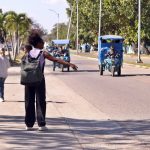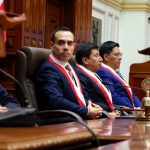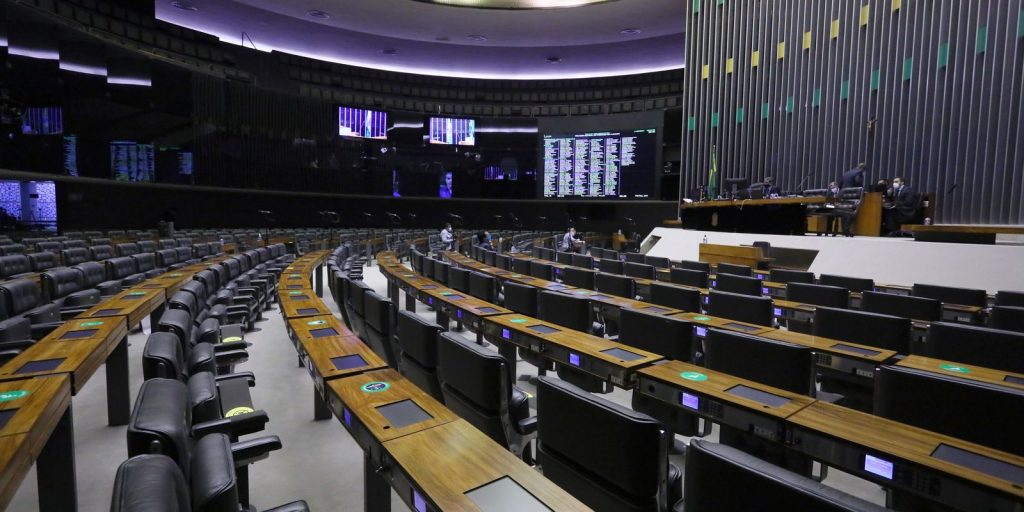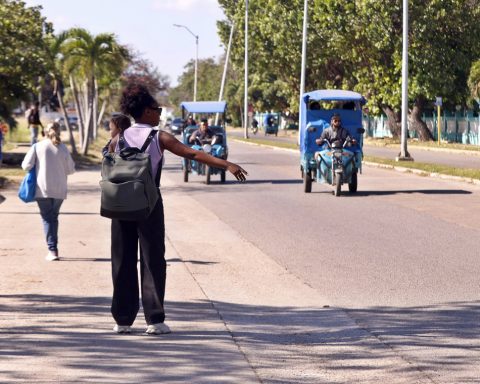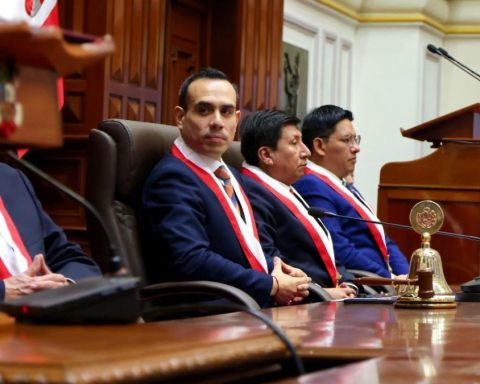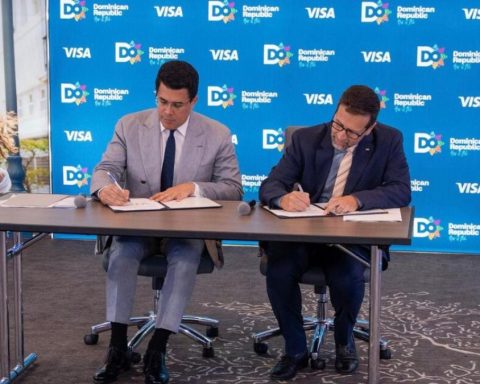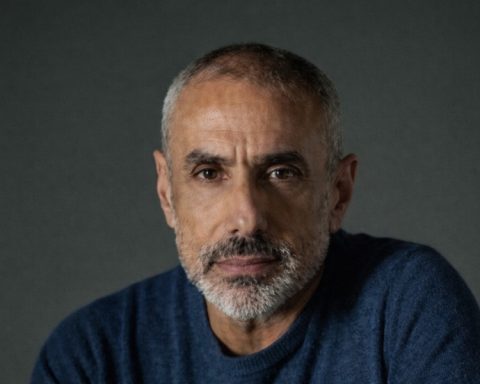
Much was written during the first two years of Sebastián Piñera’s government about one of his main characteristics in his governing style: his extreme concern about the results of the Monday poll. To this was added the concern about Twitter’s metrics, with weekly reports that reached the desk of all ministers, with attached data and the results of the visibility of government strategies. with all that background, the Executive insistently pushed multiple campaigns to influence public opinion, coming directly from the Segegob offices, with different and creative hashtags.
Apart from what was successful or not from the strategies, the big problem is that it exposed the weaknesses of the outgoing Head of State, that need to be liked, to always be well evaluated and appreciated by the citizens, an obsession that he never managed to get out of the two administrations in which he had to succeed former President Michelle Bachelet. That resulted in a series of gimmicky decisions, some erratic, with a short-term outlook, and that ended up deepening problems that required another type of approach, a situation widely criticized by Chile Vamos.
Both in the ruling party and in the government coalition that is preparing to take office this Friday, March 11, there is agreement that these driving errors resulted in the application of failed policies in three large areas, with which the Gabriel Boric administration. It’s about unwanted inheritances.
The first of these is the migratory crisis, where although everyone repeats that it was not born in the current administration, they do agree that its deepening occurred due to not having generated prevention strategies and a long-term exit. The second is the Mapuche conflict, a political problem that was not generated in this Government either, but in the face of which, just like the previous one, the measures adopted only led to a worsening of the conflict. And in third place is public safety and crime, a problem that fits in the same basket. Because the “party is never over,” as the President promised in one of his campaign slogans, but on the contrary, it was lit up as an eternal party.
Regarding the latter, the director of Tresquintos, Kenneth Bunker, indicated that “this government never took charge of crime. It is paradoxical that, if someone was going to take charge of this, it was going to be the right. It draws attention, we know it has to do with Sebastián Piñera’s loss of agenda. He has practically not governed for almost two years”.
Some facts that marked the approach that the Government sought to give to this item resulted in the identity control project, finally approved in Parliament with transversal votes, but under government pressure, and regarding which, in fact, the numbers showed a high expenditure of resources for a minimum final result. That served the administration to continually present numbers of controlled people and their background to mark on the security agenda, along with seeking to lower the levels of perception of insecurity, but it did not have results aimed at working on the substance of the matter. Also remembered are the Friday police rounds of the former Interior Minister, Andrés Chadwick, which was described on countless occasions as a mere act of populism.
The truth is that, according to the latest National Urban Survey of Citizen Security (ENUSC), there was an increase in the perception of fear in the matter and a decrease in crime, which –according to several experts– would not necessarily reflect reality , since there is the factor of the numbers in black and that they consider the non-reporting, given the lack of credibility that the different institutions have suffered.
For the director of Criteria Research, Cristián Valdivieso, “in public security there was too much sensationalism, too much populism with that issue. And it fits the idea that this had quick solutions. He trivialized it and used it as a campaign slogan in Piñera 1. He installed the idea that this could be solved quickly and easily and with a couple of maneuvers or a couple of measures. Instead of showing the public that this is a very complex problem that required different ways and formulas to be able to work on it, and that we were not going to have a result in the short term.”
South Macrozone
Unlike the work regarding public security, several of those consulted, both from the ruling party and experts in the field, recognized that “at least” in this conflict there was an attempt to change things. This is in reference to the Plan Araucanía with which, at the beginning of the Government –and under the responsibility of the then Minister of Social Development, Alfredo Moreno–, an attempt was made to provide a new approach, based, among other aspects, on dialogue, a attempt that ended up on the desktop after the murder of the Mapuche community member Camilo Catrillanca. A fatal event about which many managed to foresee its epilogue, except for the Government, when the Head of State himself presented a group of Police, heavily armed, and baptized them as the Jungle Command.
From then on, in general, the priority focus of the current administration was set, rather than trying to resolve the underlying issue, in trying to pigeonhole it merely in the criminal field, installing the concept of narco-terrorism, which was replicated by all the cabinet every time they were asked, and leaving aside a more in-depth work. The various visits to the area by the former Minister of the Interior, Andrés Chadwick, had a purely police approach, as well as those of the current minister, Rodrigo Delgado.
For the director of the IES, Claudio Alvarado, “it is clear that both the migratory crisis and that of La Araucanía worsened under the second government of President Piñera, but there is responsibility that is shared with the type of opposition he had.”
The actions of La Moneda suffered several questions about what was happening in the region, mainly from Chile Vamos, from where they accused him of “not doing the trick.” That even led to the freezing of relations between Evópoli and the Government. At that time, the administration was going through a complex political and credibility moment with the public, which prevented it from playing the card that a large part of the right expected, which consisted of applying a State of Exception.
But once the episodes of burnings increased, including murders in the different incidents, and once the narrative of narco-terrorism was imposed, things became easier for him in that aspect.
In between, and prior to the string of States of Exception, there was a strike by the National Confederation of Freight Transport (CNTC), led by Sergio Pérez and which featured a serious accusation from Juan Araya, representative of the National Confederation of Transport union. Truck Owners (CNDC). On the occasion, Araya had targeted La Moneda, accusing that it had asked the CNTC to stop its functions for the approval of the Juan Barrios Law, which toughens penalties for arson attacks on vehicles with people inside. Although Araya later backed down on his statements, he also insisted that “there was a strike that is not typical of the strikes made by truckers.” Today he is sued for his statements.
Once time had passed, from La Moneda they decided to take a step that they would not back down until they left the administration, and this was reported by close advisers in October of last year. The decree of State of Exception in the area, and which now seeks its ninth renewal, even going over the incoming Government, where they must take charge of President Sebastián Piñera’s decision for at least 15 more days.
Several in the Palace recall that, once the murder of Camilo Catrillanca occurred, the commitment to dialogue, or some strategy of dealing with and solving the problem, simply ceased to exist in the interest of the Executive.
The future authorities have insisted that their strategy will focus on seeking the broadest dialogue, in contrast to the work of President Piñera’s administration, however, in an interview with CNNthe future Minister of the Interior, Izkia Siches, qualified that position by pointing out that “not everything is written in stone”.
Immigration
As with what is happening in the Southern Macrozone, this is not a phenomenon that began under the mandate of the current Head of State, but it did deepen during this administration, because – as several of the regional governors denounced – it was never He would have given it the importance it required, before the problem spread and was completely out of the control of the central authorities.
And it is that irregular immigration brought with it, as the regional and central authorities point out, the phenomenon of violence, and both, without the capacity to contain it, ended up producing a feeling of lack of control in the citizenry.
During the questioning of the Minister of the Interior, Rodrigo Delgado, in October of last year, the deputy Vlado Mirosevic informed him of the situation that was occurring on the northern border of the country, but at that time the issue was not a priority.
This phenomenon, inseparable from the dictatorship of Nicolás Maduro in Venezuela, had a chapter that, although the Government has sought to lower its profile, preferring to install the words of the future President, Gabriel Boric, as more preponderant in responsibility, has to do with the called Cucutazo.
In the midst of President Piñera’s attempt to position himself as an international leader, he traveled to the city of Cúcuta, in Venezuela, to, through the excuse of humanitarian aid – as close collaborators recognize him – participate in an event that sought for the Armed Forces to Venezuelan armies will rebel. Together with the president of Colombia, Iván Duque, and the self-styled interim president of Venezuela, Juan Guaidó, they made all kinds of calls for the Venezuelan population to be welcomed. The democratic responsibility visa was established, among others. So far, there is no HR specialist. that he has not cataloged the episode as one of the most shameful in the country’s diplomatic history and that he has not linked it to an increase in illegal immigration.
Already with the phenomenon being the cover of all the media, and in the midst of the words of the director of the National Migration Service (SNM), Álvaro Bellolio, who with zero self-criticism only blamed the future Government, it was Minister Delgado himself who sought, on-site, install a new containment policy, since the situation was hitting the outgoing administration squarely. In the midst of everything, it is worth noting the absence and subsequent resignation in the midst of the crisis of Andrés Allamand, today the new Ibero-American Secretary General.
In this regard, and also in relation to public security, Valdivieso added that “the deepening of the problem will forget how much responsibility the previous government had and it will become a responsibility of the present government. The responsibility of the previous governments lasts two months”.
Political analyst Tomás Duval pointed out, in general terms, that “perhaps the great problem of the Piñera government was that of a wrong diagnosis of the country’s situation, in the sense that his second visit to La Moneda was against Bachelet, and in the development of this lacked instruments, perspectives and sensitivity to understand the changing reality that was presented to it, especially in politics and the connection with citizens. That only deepened the problems. It should be remembered that in March 2018 -seven months before the social outbreak that brought down the political board-, the then Minister of the Interior (Andrés Chadwick) rejected Bachelet’s constitutional reform project in the middle of Enade’s session, to the applause of the assistants”.
In the last Ipsos survey, from February, on a scale of 1 to 7, in areas such as “Control of the Immigration Process” and “Public Security and Crime Control”, the current President only obtained marks of 2.2 and 2.0, respectively.






